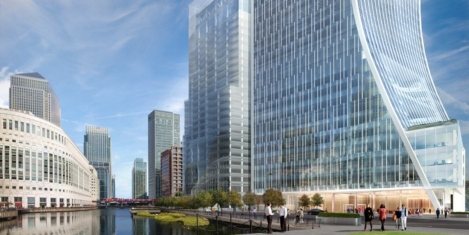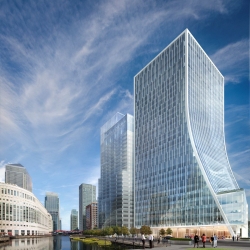To provide the best experiences, we use technologies like cookies to store and/or access device information. Consenting to these technologies will allow us to process data such as browsing behaviour or unique IDs on this site. Not consenting or withdrawing consent, may adversely affect certain features and functions.
The technical storage or access is strictly necessary for the legitimate purpose of enabling the use of a specific service explicitly requested by the subscriber or user, or for the sole purpose of carrying out the transmission of a communication over an electronic communications network.
The technical storage or access is necessary for the legitimate purpose of storing preferences that are not requested by the subscriber or user.
The technical storage or access that is used exclusively for statistical purposes.
The technical storage or access that is used exclusively for anonymous statistical purposes. Without a subpoena, voluntary compliance on the part of your Internet Service Provider, or additional records from a third party, information stored or retrieved for this purpose alone cannot usually be used to identify you.
The technical storage or access is required to create user profiles to send advertising, or to track the user on a website or across several websites for similar marketing purposes.
 Six in 10 people feel unable to express their true emotions in the workplace, new research has claimed. In a survey of 2,000 UK workers and 250 line managers by Totaljobs and Dr Terri Simpkin, a Visiting Fellow at Anglia Ruskin University, most workers said they prefer to deal with emotions on their own. This was particularly true of sadness, which 60 percent chose to handle themselves rather than asking for help. (more…)
Six in 10 people feel unable to express their true emotions in the workplace, new research has claimed. In a survey of 2,000 UK workers and 250 line managers by Totaljobs and Dr Terri Simpkin, a Visiting Fellow at Anglia Ruskin University, most workers said they prefer to deal with emotions on their own. This was particularly true of sadness, which 60 percent chose to handle themselves rather than asking for help. (more…)






 One in six employees (17 percent) has been forced to take time out from their career due to stress or mental health pressures, a survey of 3,000 people has suggested. According to the research from
One in six employees (17 percent) has been forced to take time out from their career due to stress or mental health pressures, a survey of 3,000 people has suggested. According to the research from 




 A quarter of employees think challenging issues like workplace bullying and harassment are swept under the carpet in their organisation, a new report from the CIPD, the professional body for HR and people development, claims.
A quarter of employees think challenging issues like workplace bullying and harassment are swept under the carpet in their organisation, a new report from the CIPD, the professional body for HR and people development, claims. 
 Two thirds of employees say they are more productive when they work remotely yet many are being held back because flexible working technology is not optimised. Research carried out among 2,016 UK flexible workers by
Two thirds of employees say they are more productive when they work remotely yet many are being held back because flexible working technology is not optimised. Research carried out among 2,016 UK flexible workers by 
 Data entry is the world’s most hated office technology task, with workers wasting about 40 percent of their day on this and other ‘digital admin’, a study has claimed. In a survey of 10,500 office workers spanning 11 countries, respondents said they average more than three hours a day on manual, repetitive computer tasks which aren’t part of their primary job and are ripe for human error.
Data entry is the world’s most hated office technology task, with workers wasting about 40 percent of their day on this and other ‘digital admin’, a study has claimed. In a survey of 10,500 office workers spanning 11 countries, respondents said they average more than three hours a day on manual, repetitive computer tasks which aren’t part of their primary job and are ripe for human error. 


 Younger decision makers are increasingly relying on technology such as emails, video conferencing and WhatsApp in negotiations with suppliers, rather than speaking to them face-to-face, new research from
Younger decision makers are increasingly relying on technology such as emails, video conferencing and WhatsApp in negotiations with suppliers, rather than speaking to them face-to-face, new research from 


 Four in ten professionals admit they’re on the brink of
Four in ten professionals admit they’re on the brink of 









